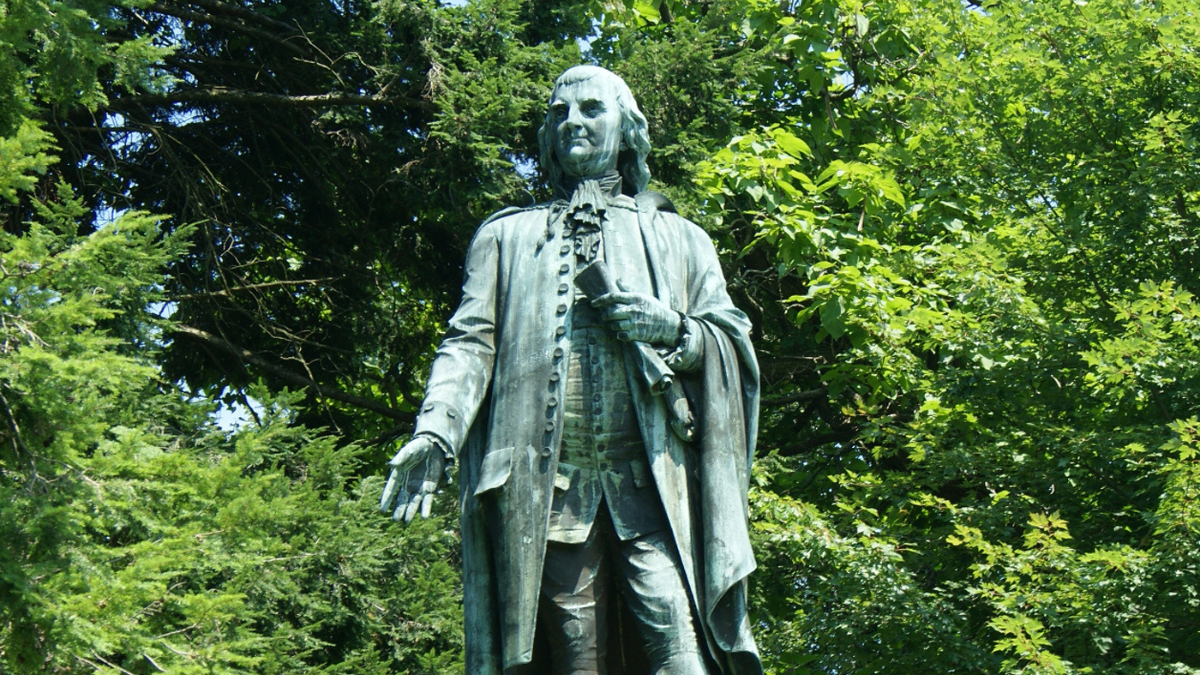

The Legacy of John Witherspoon
The groundwork of a lesser-known founder who shaped the early years of the Republic.
11/22/23
John Stonestreet and Glenn Sunshine

The month of November marks the death of John Witherspoon, one of the most important and most underrated of the American founding fathers. Born in Scotland in 1723, Witherspoon received a Master of Arts at age 16 from the University of Edinburgh, where he would continue his studies in divinity. In 1745, he became an evangelical minister in the Church of Scotland.
Witherspoon was no fan of the monarchy and was imprisoned the following year for opposing the royalist Jacobite uprising, an experience that damaged his health for life. After his release, he returned to pastoral ministry. In 1764, the University of St. Andrews awarded Witherspoon an honorary Doctor of Divinity.
Four years later, Witherspoon accepted the presidency of the College of New Jersey, a Presbyterian college now known as Princeton University. Though the school’s primary mission was to train Presbyterian ministers, Witherspoon found the school in quite a mess. The students were given poor teaching and an inadequate library. Through fundraising, reorganization, higher standards, and securing new resources–including donating hundreds of books from his personal library–Witherspoon transformed the college into a top-tier school.
In addition to providing leadership at a crucial time in the university’s history, Witherspoon taught courses in rhetoric, history, divinity, and moral philosophy, a required course at the college. His ideas were anchored in his Reformed faith and the natural law tradition. He was also heavily influenced by Scottish philosopher Thomas Reid’s Common Sense Realism. These ideas took deep root in Princeton and across American society generally. Witherspoon’s teaching laid essential groundwork for both the American Revolution and the government that followed.
Leaning heavily on the Calvinistic tradition, Witherspoon promoted the rights of people to challenge governmental overreach, even by force of arms if necessary. Unsurprisingly, he strongly supported the American Revolution, especially concerned by a growing centralization of government and the Crown taking over responsibilities that were historically the prerogatives of the colonies. The final straw for Witherspoon was when bishops were appointed from England to oversee religious life in the colonies.
Like his Presbyterian forebearers in Scotland, Witherspoon saw these violations as justification for revolt. He served in the Continental Congress from 1777 to 1784, taking on a prodigious amount of work and serving on over 100 committees. After the war, he helped draft the Articles of Confederation and later shepherded the Constitution through the New Jersey state legislature.
Even with that impressive resume, Witherspoon’s most important impact came from the students who took his moral philosophy classes at the College of New Jersey. Witherspoon taught James Madison the necessity of checks and balances in government. Among his other students were Aaron Burr, 37 judges, including several members of the Pennsylvania Supreme Court and three justices of the Supreme Court of the United States, 10 cabinet officers, 12 members of the Continental Congress, 28 U.S. Senators, and 49 U.S. Congressmen. Witherspoon was arguably the single most influential founder who shaped the early years of the Republic.
Despite all this, Witherspoon is mostly remembered today for owning two slaves. Like many of the founders, Witherspoon’s attitudes toward slavery were complex and often contradictory, a fact that explains but does not excuse his stance. Witherspoon taught that slaves and employees should be treated with dignity and respect. He even spoke out against the institution of slavery at the college. However, he also opposed a measure by the state legislature that would have banned slavery in New Jersey. Like many others, Witherspoon believed slavery would die out within a generation, and thought the legislation was unnecessary and could interfere with the process he believed was inevitable.
Though there were a few consistent abolitionists among the founders, Witherspoon was among the many elites in the eighteenth century who owned slaves as domestic servants or to work land.
Witherspoon failed to extend his convictions about liberty for all to the slaves in his midst. That moral tragedy should not fully blot out the honor owed to him for his incredible contributions to the founding of the United States and the securing of the freedoms we enjoy.
This Breakpoint was co-authored by Dr. Glenn Sunshine. For more resources to live like a Christian in this cultural moment, go to breakpoint.org.
Have a Follow-up Question?
Up
Next















